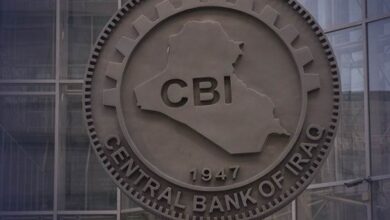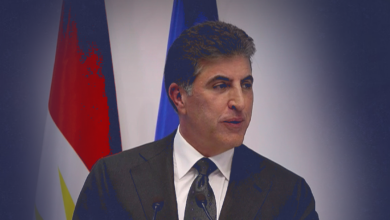
SULAIMANI, Kurdistan Region — The Iraqi Parliament has granted its seal of approval to the budget bill for 2023, 2024, and 2025, following protracted political disputes and a four-day deliberation. This development signals a significant milestone in the country’s ongoing efforts to rebuild its economy, which has been ravaged by years of warfare against ISIS.
The budget bill for 2023 has reached 98.9 trillion dinars ($153 billion), unveiling a remarkable commitment to propel the nation forward. The approved budget sets an all-time high in expenditure, particularly directed towards the mounting public wage bill and ambitious development projects.
This financial commitment underscores the government’s determination to stimulate economic growth and improve the living conditions of its citizens, reinforcing Iraq’s path towards progress and stability.
The budget has been calculated assuming that the price of oil will be $70 per barrel, and it anticipates that the country will export 3.5 million barrels of oil every day. Out of this amount, 400,000 barrels per day are expected to come from the Kurdistan Region’s oil fields.
The budget also tackles the volatility of the Iraqi dinar against the US dollar. To enhance economic stability, the exchange rate has been set at 1,300 dinars per dollar, aiming to curb fluctuations that have previously endured by the Iraqis.
During the budget deliberations, the allocation of the Kurdistan Region’s share in the federal budget and its oil exports emerged as the most debatable topics, shedding light on the enduring disputes between the federal government and the Kurdistan Regional Government (KRG). Articles 12, 13, and 14, which directly addressed these issues, sparked lengthy debates and required several days of intense negotiations before finally securing the necessary votes for passage.
A recent agreement between Erbil and Baghdad has solidified the role of Iraq’s state-run marketing company, SOMO, in the marketing and export of crude oil originating from fields under the control of the Kurdish Region. As part of this arrangement, the budget bill states that Iraq should provide the Region with its rightful financial entitlements, constituting 12.67 percent of the federal budget.
Article 14 of the bill has introduced an additional paragraph, granting Baghdad the authority to directly intervene in provinces within the Kurdistan Region, should the Kurdistan Regional Government (KRG) be found responsible for an unjust distribution of revenues. This inclusion, proposed by the Patriotic Union of Kurdistan (PUK), reflects growing concerns that the Kurdistan Democratic Party (KDP), which holds a majority of top positions in the region, may neglect the financial obligations owed to Sulaimani province, where the PUK wields considerable influence.
Tensions between the Kurdish political parties, particularly the KDP and PUK, have reached a new level following the inclusion of the paragraph in a budget bill. The Political Bureau of the PUK has applauded the PUK faction in the Iraqi parliament for approving the eighth paragraph of Article 14, which emphasizes Baghdad’s direct involvement with the protesting provinces. The PUK asserted that with this development, the city of Sulaimani and others “would no longer endure injustice,” and the lives of the people would no longer be “exploited as instruments of conflict.”
However, in a stern message, the Kurdistan Region’s Prime Minsiter Masrour Barzani strongly opposed the inclusion of the paragraph, saying that the “courageous attitude of the patriots” and “the treachery of the traitors” will be remembered by history.
“The Kurdistan Region will only grow stronger, and we will not compromise on our constitutional rights,” Barzani added.
هەڵوێستی جوامێرانەی نیشتمانپەروەران لە لایەک و ناپاکیی نیشتمانفرۆشان لە لایەکی تر، لە مێژوودا تۆمار دەکرێت.
هەموو لایەک دڵنیابن هەرێمی کوردستان بەهێزتر دەبێت و سازش لە مافە دەستوورییەکان ناکەین.
— Masrour Barzani (@masrourbarzani) June 11, 2023
Massoud Barzani, the leader of the KDP, issued a statement denouncing recent attempts in the Iraqi Parliament to undermine the constitutional rights of the Kurdistan Region. Barzani emphasized that these efforts have ultimately failed in achieving their objectives, asserting that Kurdistan is not just a redline but also a “death line.”
The approval of the budget bill is a significant step forward for Iraq, but it remains to be seen whether it will be enough to address the country’s deep-seated economic and political problems. The Kurdistan Region, for its part, will need to continue to work with Baghdad to resolve their outstanding differences and ensure that the budget is implemented in a fair and equitable manner.



